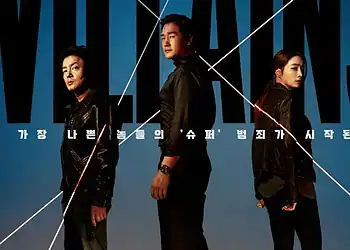The intersection of artificial intelligence and entertainment has always been a hotbed for innovation, but it’s now at the center of a heated legal debate. In a move that has sent shockwaves through both the gaming and entertainment industries, Fortnite—the global gaming phenomenon—has found itself embroiled in controversy over its use of an AI-generated Darth Vader voice. The issue escalated when SAG-AFTRA, the powerful union representing actors and voice artists, filed formal charges against the game’s creators, raising critical questions about the ethical and legal boundaries of AI in creative fields.
This unfolding saga is more than just a dispute over digital voices; it’s a landmark moment that could shape the future of how AI is used in gaming, film, and beyond. As fans, developers, and industry insiders watch closely, the outcome of this legal battle may set new precedents for intellectual property, performer rights, and the evolving relationship between technology and artistry. Let’s dive into the details of the Fortnite Darth Vader AI voice controversy, the legal arguments at play, and what this means for the future of gaming and entertainment.
Table of Contents
The Fortnite Darth Vader AI Voice Controversy: How It All Began
The controversy began when Fortnite, known for its ever-expanding universe of pop culture crossovers, introduced a Darth Vader character with a voice that sounded uncannily like the original Star Wars villain. However, instead of hiring a human actor or the original voice talent, the game’s developers reportedly used artificial intelligence to replicate the iconic voice. This move quickly caught the attention of SAG-AFTRA, which represents thousands of voice actors and performers in the United States.

SAG-AFTRA’s concerns center on the use of AI to mimic the voices of real actors without their consent or fair compensation. The union argues that this practice not only undermines the livelihoods of professional voice artists but also raises serious ethical questions about consent, ownership, and the future of creative work. By filing charges, SAG-AFTRA aims to challenge what it sees as a dangerous precedent—one that could allow companies to sidestep traditional contracts and royalties by relying on AI-generated performances.
Legal and Ethical Implications: Performer Rights in the Age of AI
The legal battle over Fortnite’s Darth Vader AI voice is about more than just one character or one game. At its core, the dispute highlights the growing tension between technological innovation and the rights of creative professionals. SAG-AFTRA’s charges allege that the use of AI to replicate a performer’s voice without permission violates both labor agreements and intellectual property laws. The union is pushing for clear guidelines that would require companies to obtain consent and provide fair compensation whenever AI is used to recreate a performer’s likeness or voice.
This case is being closely watched by the broader entertainment industry, as it could set important legal precedents. If the courts side with SAG-AFTRA, it could lead to stricter regulations on the use of AI in gaming, film, and television. On the other hand, a ruling in favor of Fortnite’s creators might open the door for more widespread use of AI-generated voices and characters, potentially reshaping the landscape of digital entertainment. The outcome will likely influence how contracts are written, how intellectual property is protected, and how artists are compensated in the age of AI.

Key Points in the Fortnite Darth Vader AI Voice Legal Dispute
| Aspect | Details |
|---|---|
| Game | Fortnite |
| Character in Question | Darth Vader (AI-generated voice) |
| Union Involved | SAG-AFTRA |
| Main Issue | Use of AI to replicate actor’s voice without consent or compensation |
| Legal Action | Formal charges filed by SAG-AFTRA |
| Industry Impact | Potential new regulations for AI use in gaming and entertainment |
The Broader Impact: What This Means for Gaming and Entertainment
The Fortnite Darth Vader AI voice controversy is a watershed moment for the gaming industry and beyond. As AI technology becomes more sophisticated, the ability to create lifelike digital performances is both a blessing and a challenge. For game developers, AI offers new creative possibilities and cost efficiencies. For performers and unions, however, it raises urgent questions about job security, artistic integrity, and the value of human creativity.
This legal battle is likely to influence not just how games like Fortnite are made, but also how the entire entertainment industry approaches AI. Companies may need to rethink their strategies, invest in new legal frameworks, and engage more closely with unions and artists to ensure that innovation does not come at the expense of fairness and respect for creative professionals. The case also serves as a wake-up call for fans and consumers, highlighting the importance of supporting ethical practices in the media they love.
EA FC25 Immortality League: Unlock 92-Rated Paolo Maldini in Ultimate Team
FAQs
Q: Why did SAG-AFTRA file charges against Fortnite over the Darth Vader AI voice?
A: SAG-AFTRA filed charges because the game used AI to replicate the voice of Darth Vader without the consent or compensation of the original voice actor, raising concerns about performer rights and ethical AI use.
Q: How could this legal case affect the future of AI in gaming and entertainment?
A: The outcome could set important legal precedents, potentially leading to stricter regulations on AI use, new industry standards for consent and compensation, and changes in how digital performances are created.








